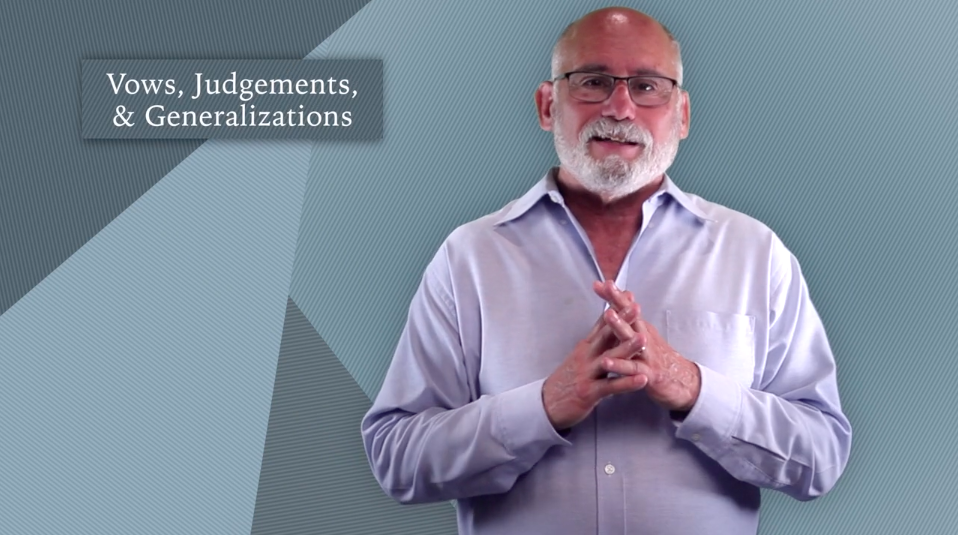Just like the basic action of driving to work, we expect a certain level of safety, trust, and consistency in our relationships with friends and relatives. If someone close to us continuously hurts us, breaks our trust, or makes us feel unsafe, it’s probably a good idea to minimize communication or contact with that person.
No one likes to get hurt, but sometimes, it happens. When our trust is broken or someone hurts us, we might make judgments that push others away.
In this week’s Trust Minute, we discuss how vows, judgments, and generalizations affect our personal relationships.
Making Judgments
From the moment we are born, we are able to take note of different behaviors and make judgments based on them. Someone’s behavior might cause us to think things like: “I like her, she’s nice, that was fun, that hurt, etc.”
From the most basic of judgments, like enjoying the taste of milk as a baby, to more extreme judgments, like having your trust broken by a loved one, we learn how friends and relatives are supposed to treat each other.
When we are made uncomfortable by someone’s actions, we try to make changes and adjust, whether that’s communication and “closing the loop”, or distancing ourselves.
Taking Offense
In this week’s blog article, we discussed a story of an 11-year-old-boy who died while in the care of a foster home. The police are investigating a wrongful death charge for the employees that were looking after him. The boy’s Sunday school teacher was very distraught and upset about the young child’s death. In a way, he took personal offense at this event.
Sometimes we take offense to events or actions that are out of our control. In this case, the Sunday school teacher could not defend the young boy and though he was very disconnected to his death, was hurt and took offense.
Making Vows
As events unfold in life, we start by making judgments, at a certain point, these judgments might turn into taking offense. It’s at this point we can make vows to help guide us in our interactions with that person or experience.
Webster Dictionary defines vow as: “a solemn promise or pledge, esp. one made to God or a god, dedicating oneself to an act, service, or way of life.”
Mark Twain’s cat jumped on the stove, it made the following judgments: That’s hot; that hurts; I don’t like it.” These judgments led to a vow: “I’m never going to jump on a hot stove again.” This vow now protects her from getting burned in the future.
Making Generalizations
Not all vows in life are bad. In fact, many vows can protect us from getting hurt.
Vows become more complicated when they are muddled by the next step in the reasoning process—generalization.
For example, it’s one thing to have a faulty tire on your car pop and not trust that specific brand of tires anymore. It would be an unhealthy generalization to assume that every tire, no matter the brand, might pop.

